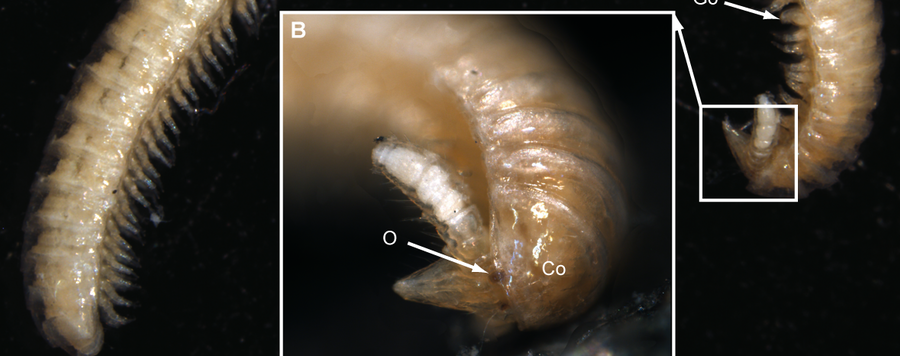
Polyzoniida of Madagascar
Polyzonium malagassum de Saussure & Zehntner, 1902, the only indigenous record of the order Polyzoniida from Madagascar, is redescribed after a study of the type specimens. The only male specimen is selected as the lectotype and illustrated. P. malagassum is discovered to be a synonym of the widespread tropical tramp species Rhinotus purpureus (Pocock, 1894). A mapping of additional locality data of R. pupureus shows that the species is widespread in Malagasy rainforests and montane rainforests, and occurs locally in high densities. Seven potentially indigenous Polyzoniida morphospecies also occur on Madagascar, but these undescribed species are more localized and show a lower abundance than R. purpureus. Brief notes, locality data, and Museum acronyms are given for the undescribed Polyzoniida species, which will hopefully assist future studies on Malagasy representatives of this little-known but biogeographically interesting order. With the discovery of the ubiquitous presence of R. purpureus on Madagascar, the similarity of the defense secretions of South American and of endemic Malagasy poison dart frogs (family Mantellidae) might derive from the fact that both groups prey on and sequester alkaloids from the same species of millipede.






